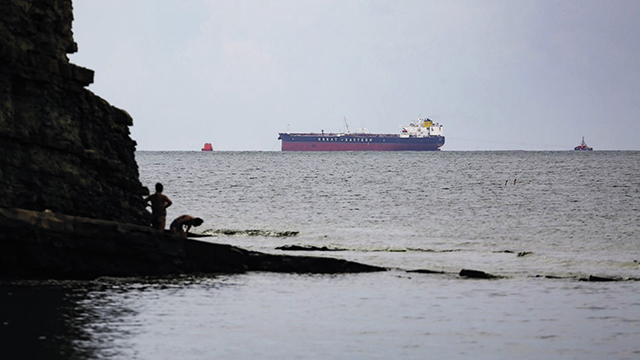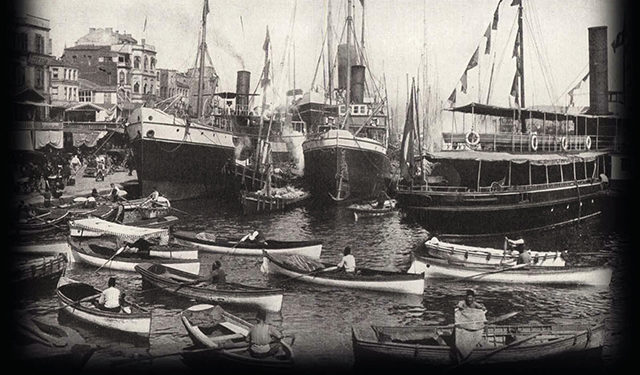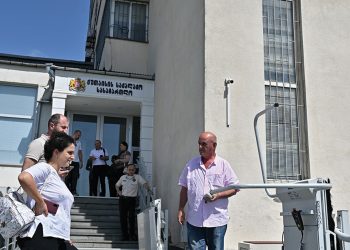The Black Sea, though always surrounded by rival powers, was nevertheless a space of economic exchange
Since the Ukraine crisis of 2014, the security situation in the Black Sea has significantly deteriorated. The annexation of Crimea by Russia, as well as the latter’s military moves around the Kerch Strait and in the Azov Sea, destabilized the shaky status quo which had been in place since the end of the Cold War.
To back up the current state of affairs in the Black Sea, many an analysis and book dedicated to the Ukraine crisis mentions the various Russian-Turkish wars of the 18th-19th centuries, underlying the notion that the Black Sea has always been a space of competition and intermittent confrontation among several powers.
Wars indeed were waged, and at least two powers were consistantly competing with each other for influence across the sea. This narrative, however, portrays the Black Sea as a sea of insecurity. In reality, though, seen from a centuries-wide perspective, wars between Russia and Turkey in the Black Sea lasted a small fraction of time in comparison with the periods of peace in the 18th-19th centuries.
Moreover, the Black Sea, though always surrounded by rival powers, was nevertheless a space of economic exchange. Trade flourished, which contributed to close contacts between littoral states. Take, for example, the period of Greek colonization starting in the 8th c. BC. Colonies in what is nowadays western Georgia and in the Crimean Peninsula enabled the exchange of goods in the region. During the Roman or Byzantine periods (until the 7th-8th cc AD), the coastline of modern western Georgia was closely integrated with great cities in Asia Minor and Crimea.
Under the unified Georgian monarchy (late 10th-15th cc.), despite patchy information in historical sources, there was a wide range of economic activity which connected western Georgia to Byzantium, Crimea and later to the Ottoman Empire. Moreover, this period saw such a large economic interconnection that Georgian traders even visited Constantinople, Thessaloniki and, from the late 13th c. onwards, were in close contact with Italian merchants who were operating ships and had colonies in Crimea and some Georgian cities.
Even the period of great empires from the early 18th c. around the Black Sea cannot be considered solely as a time of continuous confrontation. In fact, the Black Sea served as a good merging point for connecting different economic systems represented by Russia and the Muslim world (the Ottoman Empire). By the early 20th century, just before the outbreak of World War I, there was a lot of economic activity, seeing Russia sending most of its coal and grain through the Bosporus and Dardanelles to different parts of the world. Georgia, too, was connected to the rest of the world by the early 20th century, with Batumi operating as a main conduit.

The current deterioration of the security situation in the Black Sea could potentially diminish the overall economic activity, curbing the flow of foreign investment
Surprisingly, the Soviet period too can be characterized as a period of economic cooperation. Ukraine, Georgian and Russian ports transported oil, coal and other natural resources through the straits to the Mediterranean.
Thus, despite the wars we know in history, there are even longer periods of much deeper economic cooperation which the countries (empires) around the Black Sea have enjoyed over the past several centuries.
Back to the current deterioration of the security situation in the Black Sea, it potentially could diminish the overall economic activity as the flow of foreign investment can be curbed and diverted elsewhere. In a way, the geopolitical situation in the Black Sea nowadays is more chaotic and unpredictable than it was in the 19th century. A certain order was still in place when Russian and Ottoman Empires fought each other, whereas today, there is much unpredictability in Russian and NATO behavior. Nevertheless, it would still be possible to say that economic cooperation among the countries living around the Black Sea will continue. The sea will again play a role not of a divisive, but rather a unifying character.
Analysis by Emil Avdaliani













